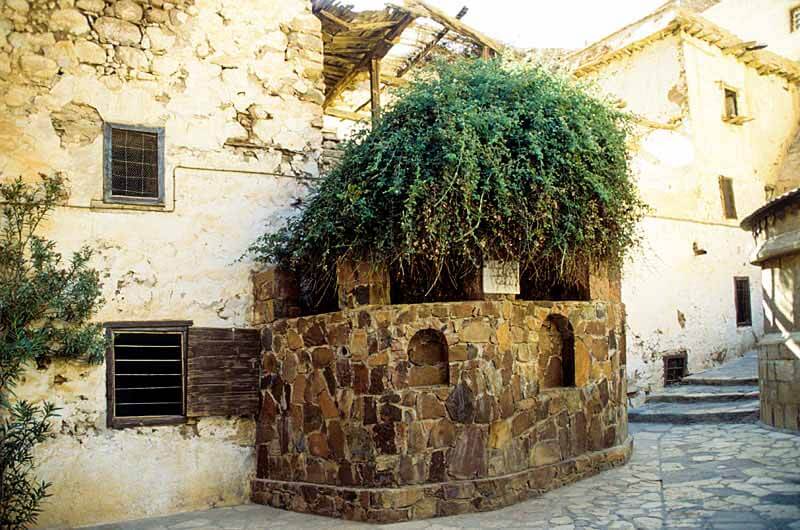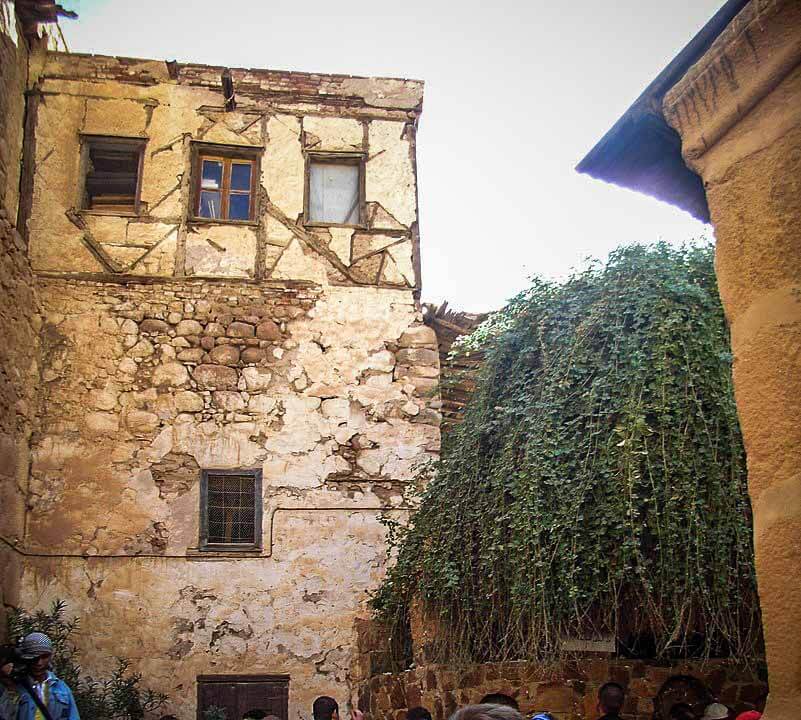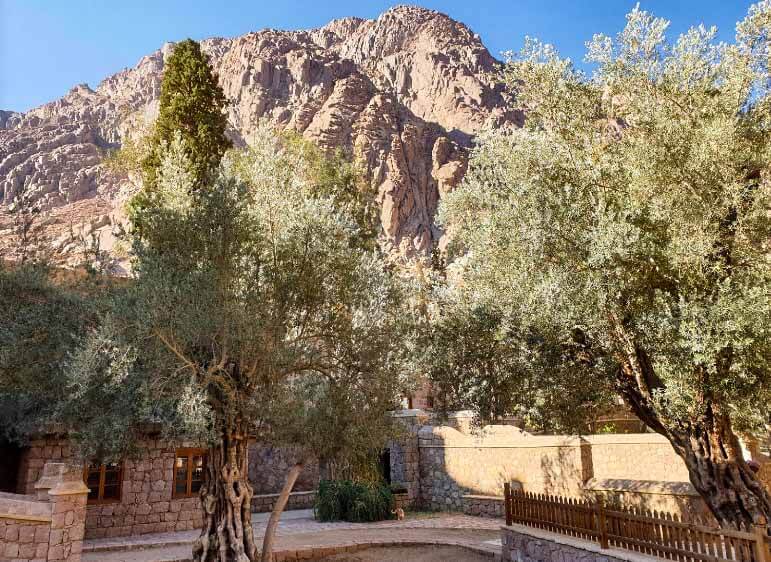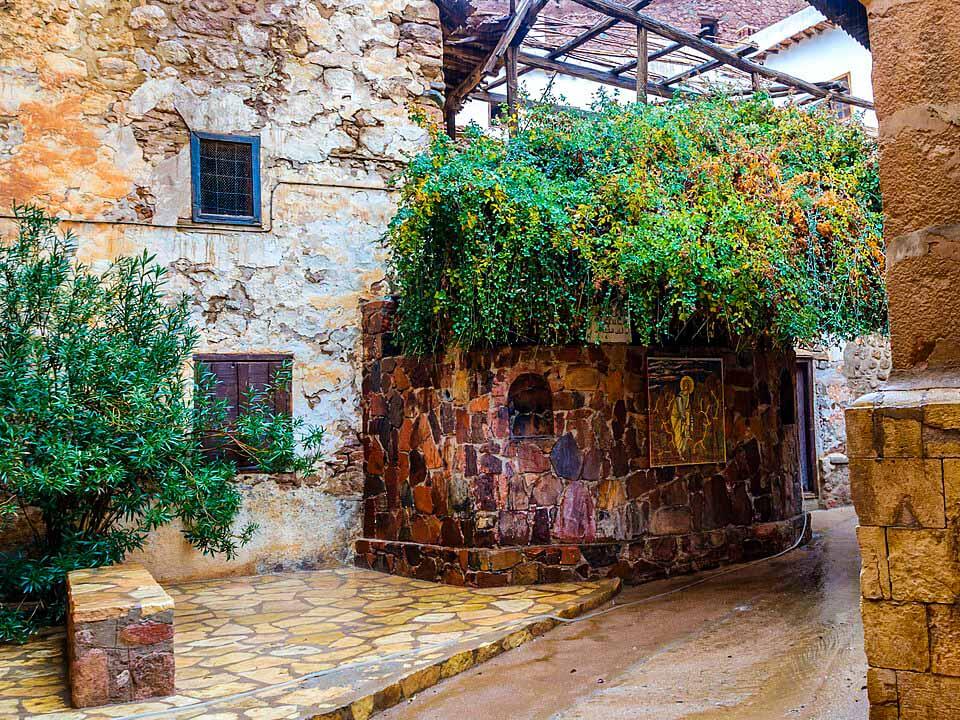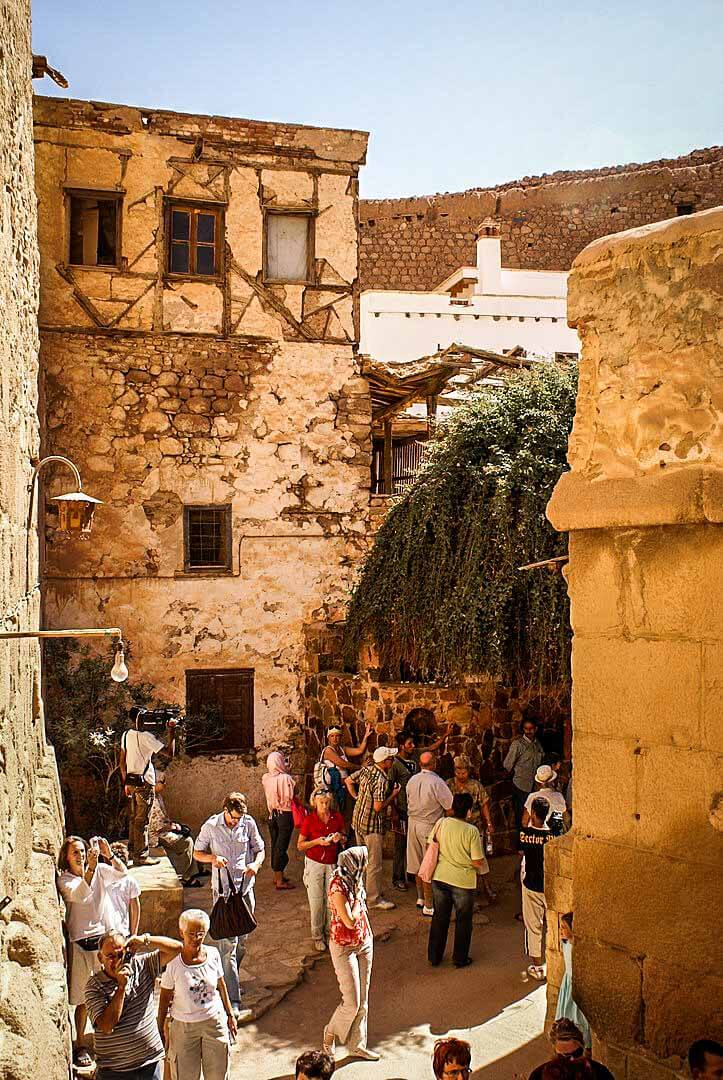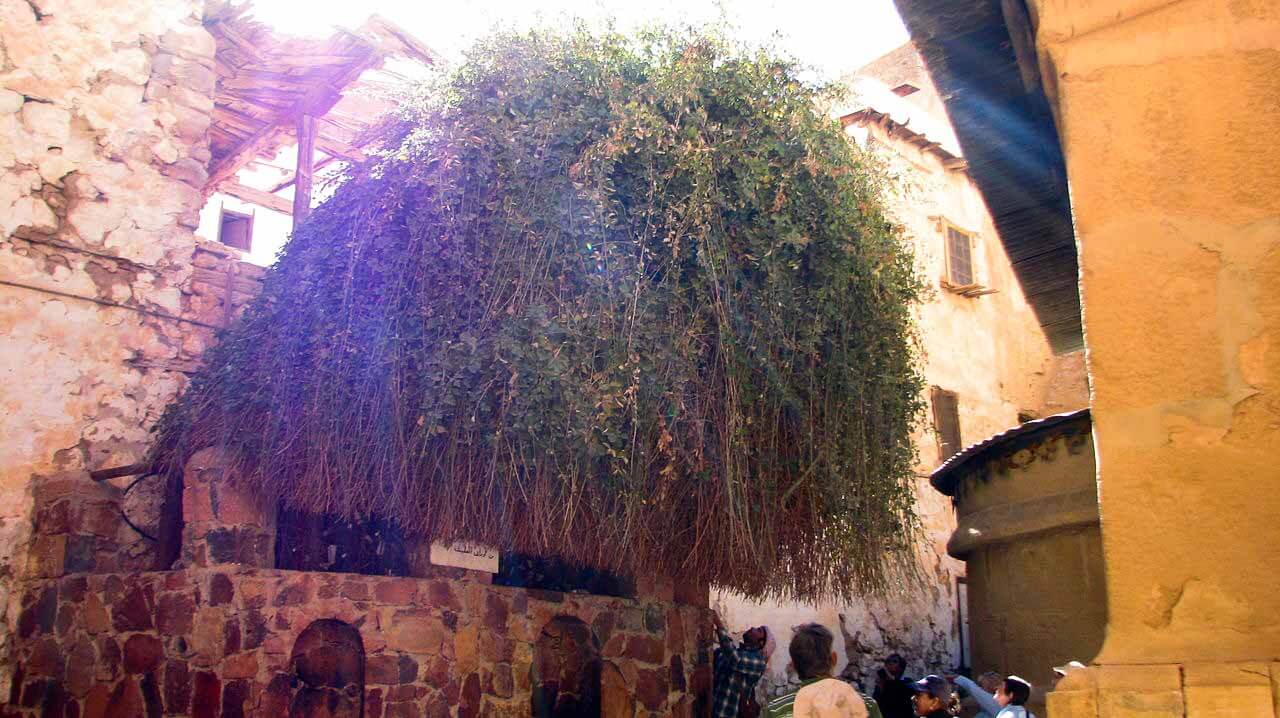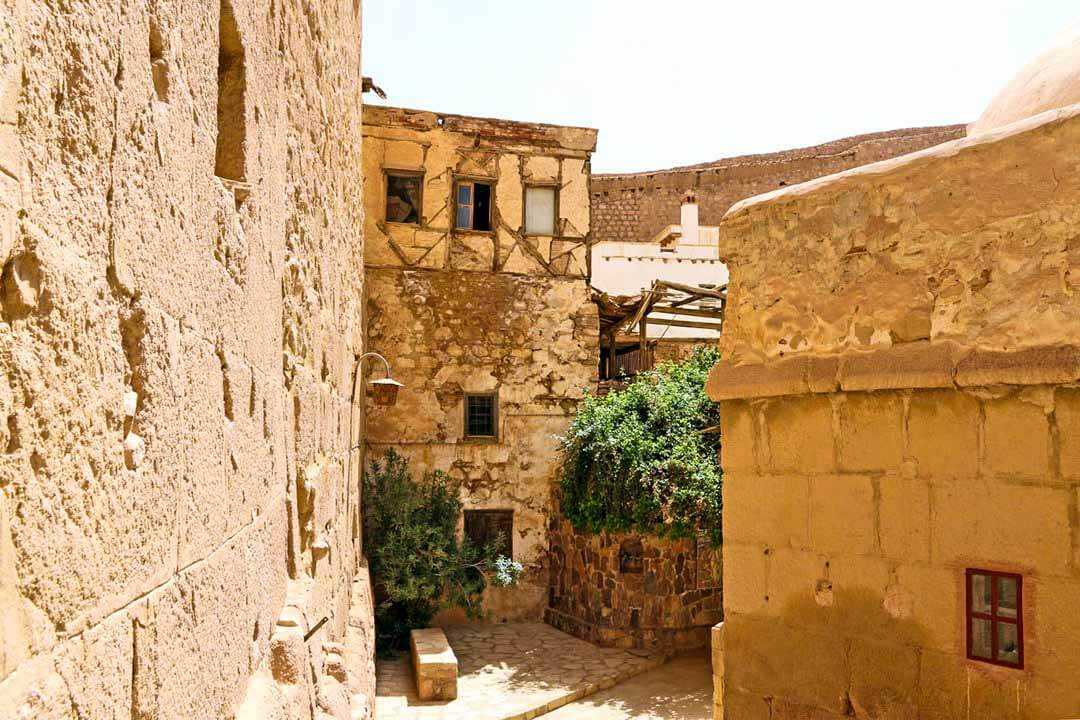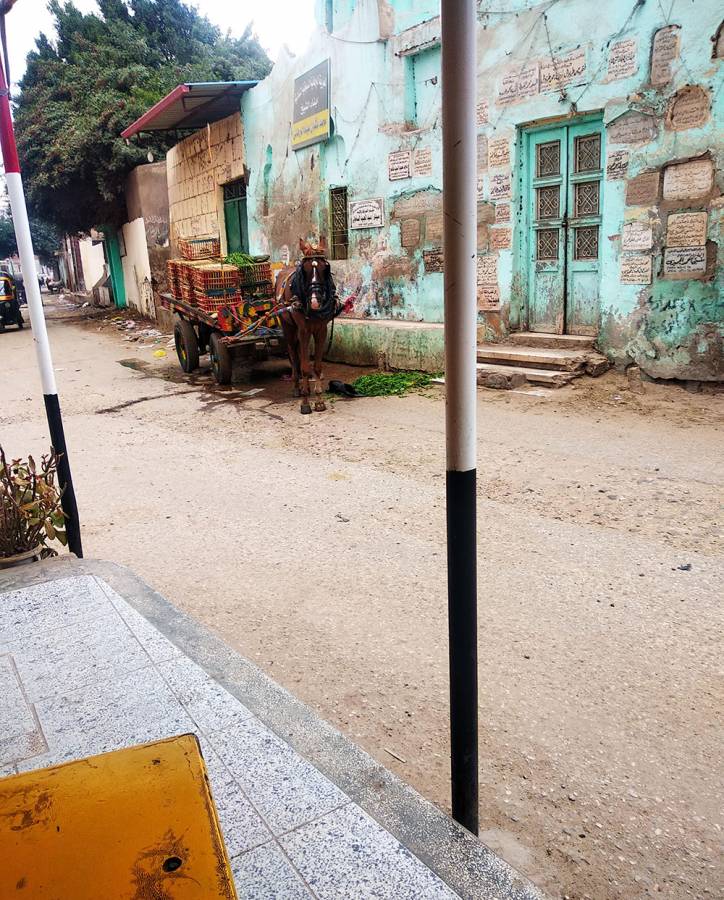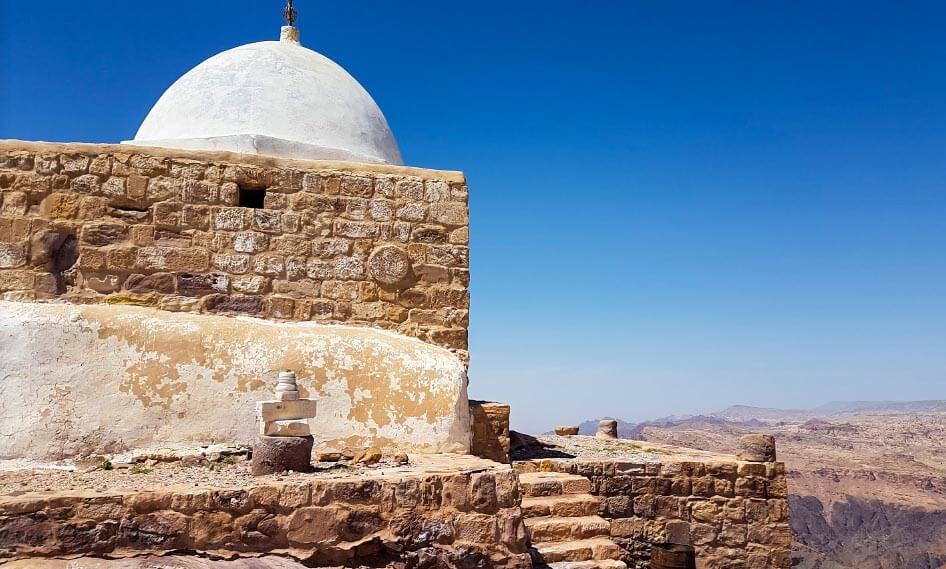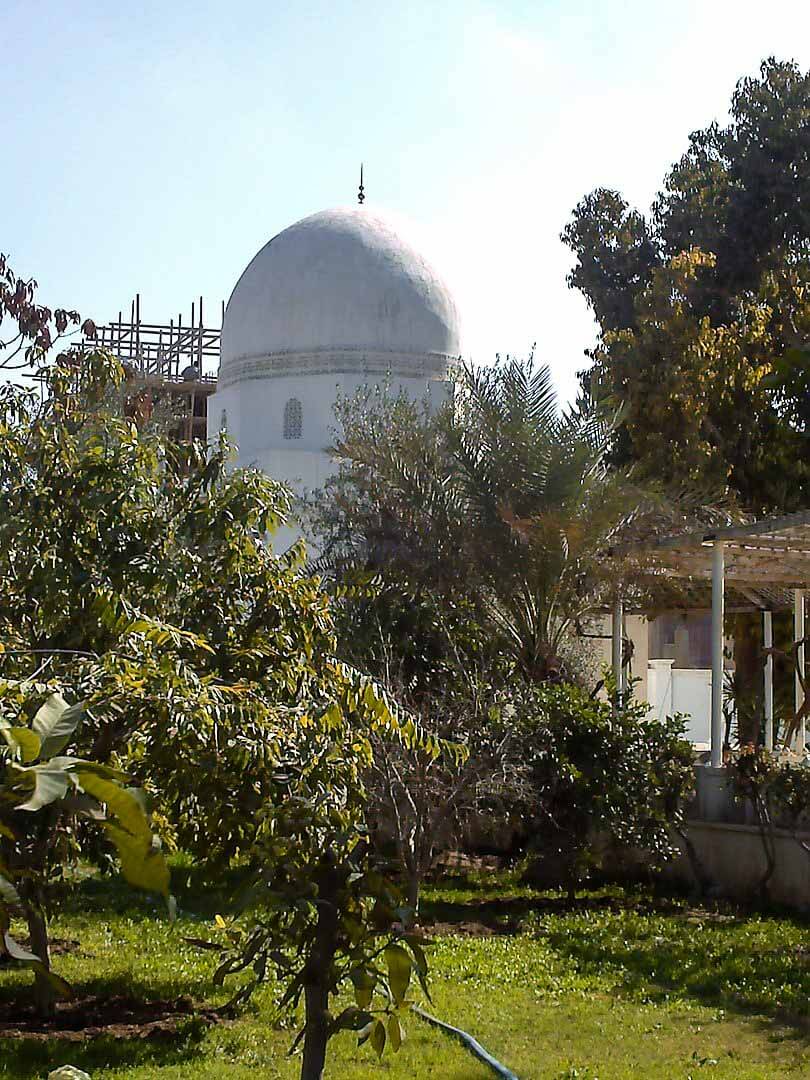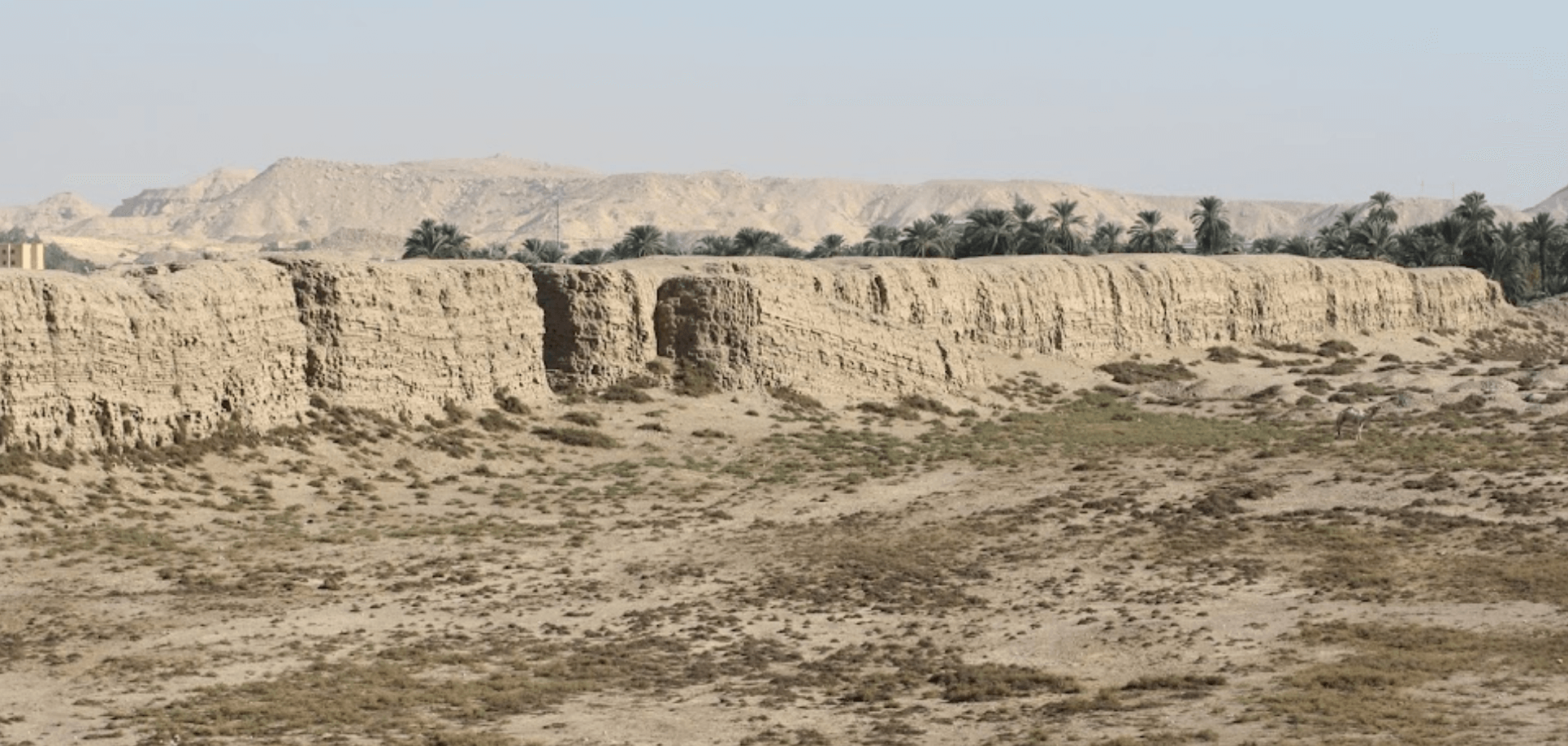South Sinai, Egypt
Coordinates: 28.555986, 33.976034
Al-Wadi al-Muqaddas Tuwa or (the Sacred Valley of Tuwa) or al-Wadi al-Ayman (the right side of the valley) or Al-Buq’a al-Mubaraka (the Blessed Spot) is a blessed piece of land, to which the Qur’an refers. Allah talked to Hz. Musa عليه اسلام and selected him as a prophet in the Blessed Spot.
According to the majority of scholars, the place is blessed because it is where Allah talked to Hz. Musa عليه اسلام.
Hz. Musa عليه اسلام was selected by Allah as a prophet and was given the miracles of the staff and the bright hand.
It is located in the southern part of Sinai Peninsula. On the way from Madyan to Egypt, it is located on the right side of Mount Sinai.
Al-Buq’a al-Mubaraka, or the Blessed Spot, is a Quranic term appearing only once in the Qur’an. When Hz. Musa عليه اسلام departed from Madyan (Midian) to Egypt overnight, his attention was attracted by a piece of fire in Mount Sinai, and thus, he went towards the fire.
But when he came to it, he was called from the right side of the valley in a blessed spot – from the tree (Which was within the fire) “O Hz. Musa عليه اسلام, indeed I am Allah, Lord of the worlds.”
Quran Ch 28 Verse no.30
Christian Traditions
The burning bush is an object described by the Book of Exodus as being located on Mount Horeb. According to the narrative, the bush was on fire, but was not consumed by the flames, hence the name.
In the biblical narrative, the burning bush is the location at which Moses was appointed by Allah to lead the Israelites out of Egypt and into Canaan.
The living bush on the grounds is purportedly the one seen by Hz. Musa عليه اسلام
The site is sacred to Christianity, Islam, and Judaism.
Not to be confused with the Incident on Jabal Musa (Mount Sinai)
There are actually two incident when Hz. Musa عليه اسلام is said to have talked to Allah.
First Incident
The first incident is when he was travelling with his family from Madyan back to Egypt than on the way Allah talked to Hz. Musa عليه اسلام in the sacred Valley of Tuwa. It is said that the Prophethood was given to him on that day. Also the miracle of stick and shining hand also happened here. This is the site where he talked to the burning bush (acc to the Christian texts).
The exact location incident of Valley of tuwa is unknown. However there is a bush in St. catherine Monastery which acc. to christian tradition is the place where Hz. Musa عليه اسلام talked to Allah and also the miracle of the hand and the stick took place here.
The source of this info whether Hz. Musa عليه اسلام talked to Allah here is almost true for muslims as well because Our master Prophet Muhammad ﷺ signed a document called as Ashtiname of Muhammad ﷺ in which he granted protection and other privileges to the followers of Hz. Isa عليه اسلام, given to the Christian monks of Saint Catherine’s Monastery. It is sealed with an imprint representing Prophet Muhammad’s ﷺ hand. This document is kept till date in the monastery.
Second Incident
The second incident of Hz. Musa عليه اسلام talking to Allah is when he was travelling with Bani Israel, taking them to the sacred land, than on the way Allah commanded him to go the mountain for 30 days and than added 10 more days making it a total of 40 days. It is said in the christian texts that this incident took place in today’s Mount Sinai.
There are two possible location in which it is said that Hz. Musa عليه اسلام spent these 40 days. First one is Mount Sinai in Egypt and the second one is Jabal al-Lawz and Jabal al-Maqla in Saudi arabia.
Both of the incident are mentioned in Quran.
Hz. Musa عليه اسلام Begins His Prophethood (Narrated by Ibn Kathir)
Hz. Musa عليه اسلام left Midian with his family and traveled through the desert until he reached Mount Sinai. There Hz. Musa عليه اسلام discovered that he had lost his way. He sought Allah’s direction and was shown the right course. At nightfall they reached Mount Tur. Hz. Musa عليه اسلام noticed a fire in the distance. “I shall fetch a firebrand to warm us.” As he neared the fire, he heard a sonorous voice calling him: “O Musa, I am Allah, the Lord of the Universe.”
Hz. Musa عليه اسلام was bewildered and looked around. He again heard the strange voice. “And what is in you right hand, O Musa?” Shivering, Hz. Musa عليه اسلام answered: “This is my staff on which I lean, and with which I beat down branches for my sheep, and for which I find other uses.” (This question was asked so that Hz. Musa عليه اسلام’ attention would focus on the staff and to prepare him for the miracle which was to happen.
This was the beginning of Hz. Musa عليه اسلام mission as a prophet. The same voice commanded him: “Throw down your staff!” He did so, and at once the staff became a wriggling snake. Hz. Musa عليه اسلام turned to run, but the voice again addressed him: “Fear not and grasp it; We shall return it to its former state.” The snake changed back into his staff.
Hz. Musa عليه اسلام’s fear subsided and was replaced by peace, for he realized that he was witnessing the Truth. Next, Allah commanded him to thrust his hand into his robe at the armpit. When he pulled it out, the hand had a brilliant shine. Allah then commanded Hz. Musa عليه اسلام; “You have two signs from Your Lord; go to Pharaoh and his chiefs, for they are an evil gang and have transgressed all bounds.”
However, Hz. Musa عليه اسلام feared that he would be arrested by Pharaoh, so he turned to Allah saying: “My Lord! I have killed a man among them and I fear that they will kill me.” Allah assured him of his safety and set his heart at rest.
Blessedness
The majority of Sunni and shia exegetes believe that the spot is referred to as “blessed” (mubaraka) because it was where Allah talked to Hz. Musa عليه اسلام and selected him as the prophet. Allama Tabataba’i maintains that the spot is blessed and dignified in virtue of Allah talking to Hz. Musa عليه اسلام there.
However, some people believe that the place was called “blessed” because it had a profusion of fruit trees.
Al-Tabrisi believes that it was the place where Allah asked Hz. Musa عليه اسلام to remove his sandals. According to Allama Tabataba’i, Hz. Musa عليه اسلام was ordered to remove his sandals because of the dignity and sanctity of the spot.
The author of al-Tibyan fi tafsir al-Qur’an appeals to a hadith from Imam Ali عليه اسلام to show that Allah ordered Hz. Musa عليه اسلام to remove his sandals in order for him to receive the blessings of the place.
Moreover, the removal of sandals is said to indicate the ultimate humbleness when receiving the message of prophethood.



